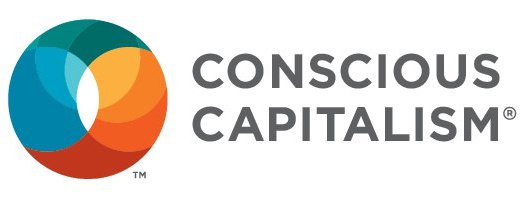 One clear message emerged from the first day of the Conscious Capitalism 2013 conference that took place April 5th and 6th San Francisco: if business is going to achieve a higher purpose, we need to change the narrative we tell about business, both inside our organizations, to each other, and outside to the rest of the world.
One clear message emerged from the first day of the Conscious Capitalism 2013 conference that took place April 5th and 6th San Francisco: if business is going to achieve a higher purpose, we need to change the narrative we tell about business, both inside our organizations, to each other, and outside to the rest of the world.
Changing the Narrative of Business
John Mackey, co-founder and co-CEO of Whole Foods Market and co-author of the book Conscious Capitalism, wants us to move away from a narrative that declares corporations to be sociopathic villains that need to be controlled. Instead, we should to recognize business and capitalism as a powerful force for good in the world, one that deserves credit for having “lifted humanity up out of the dirt.” Mackey said, “The leading narrative is that business people are only in it for the money, but this is not my experience. In my experience, they are people who are on fire for some dream they’re trying to realize in the world.”
Realizing this new narrative, as described by the speakers from Friday’s event, will take a few key steps:
Don’t check your values at the door when you come to work
As Conscious Capitalism board member Doug Rauch put it, we are now discovering ways to engage in business that embraces full human potential, and it’s about time. Conscious Capitalism co-author Raj Sisodia pointed out that for the past decade, fewer than 30 percent of Americans are engaged by the work they do, and almost 20 percent are actively disengaged. Companies like The Container Store and Method offer a model by expecting their employees to bring their whole selves to work. It is now possible to find or build a company whose values align with your own.
Put creating stakeholder value at the center of your business model
According to philosopher and professor Edward Freeman, CSR should not be an afterthought, some separate piece that is done to mitigate risk and/or improve your image. Your higher purpose should be integral to the way you do business. Reject the notion that there is a fundamental difference between your interests and your customers’. For Method founder Eric Ryan, this means blurring the line between who you are and who you serve. Business does not have to be a zero-sum game. Furthermore, we should recognize conflict between stakeholders as an opportunity for collaboration and finding new ways to create value.
Seek out (and develop) conscious leaders
John Mackey is not so naive as to believe that traditional motivators, like money and the ability to exercise power over other people, will go away, but he does think that “we need to attract a different type of human being to leadership, those who have moved higher up Maslow’s hierarchy of needs into self-actualization and self-transcendence.” Implicit in this suggestion is the idea that business has the potential to fulfill these needs, with the proper alignment of purposes. This shift will require new kinds of education that develop emotional, spiritual, and systems intelligence, not just intellectual intelligence.
Make decisions based on love, not fear
Love and trust are concepts that many would not recognize as having a place in a conversation about business and capitalism, but they were the words of the weekend. Fedele Bauccio described the culture of trust at Bon Appetite Management Company with his suppliers, employees, and customers and building a brand on emotional connection that helped him achieve $1 billion in revenues over 25 years. As IRIS USA CEO Chet Keizer said, “Do business on a hug rather than a handshake.”
By making value creation for stakeholders a central tenet of business operations, recognizing the importance of non-financial rewards, and daring to ask, “What would it look like to make decisions based on love?” it is possible to change the way we think about and do business and unlock its full potential to enable human flourishing.
Video of all talks from the first day of Conscious Capitalism 2013 are available on the Conscious Capitalism website.



